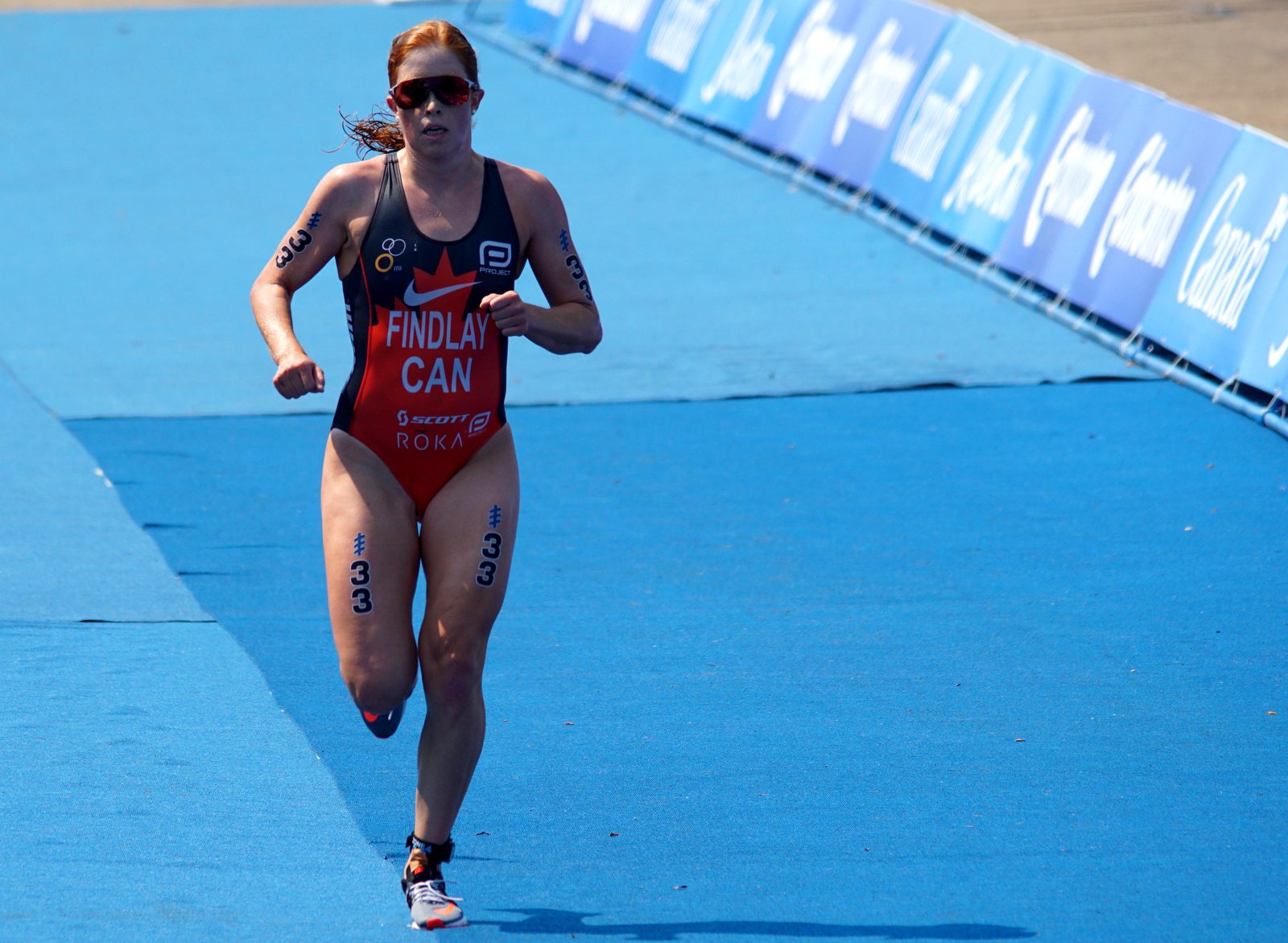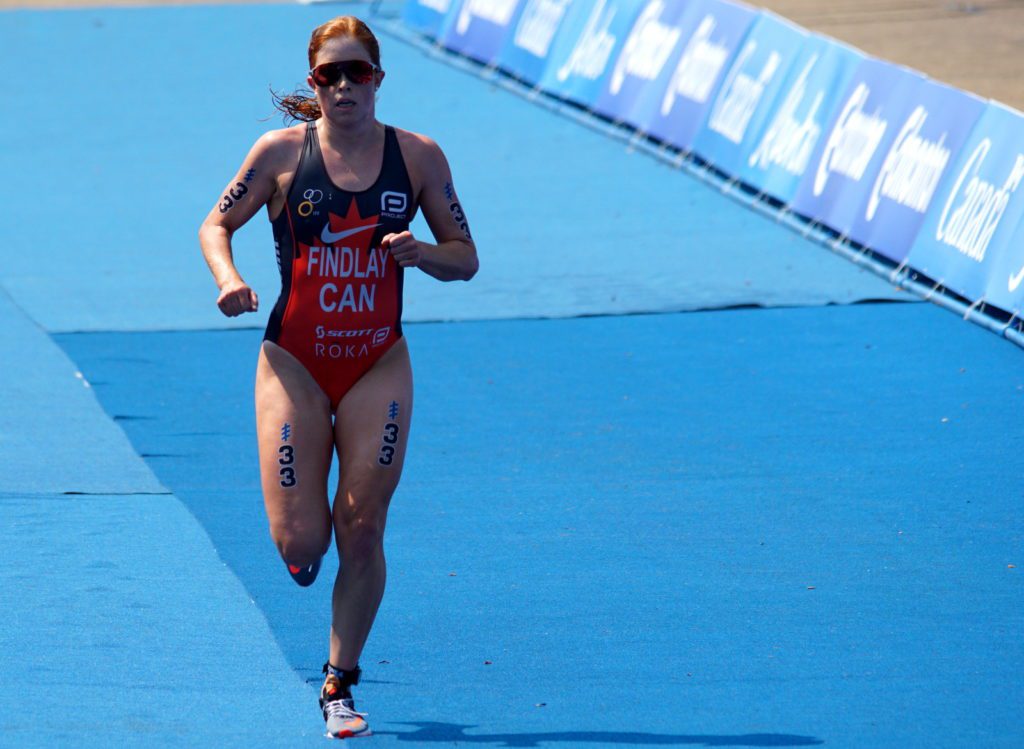Findlay opens season in Oceanside


After graduating last December, Paula Findlay has her focus squarely set on triathlon training and racing these days. We caught up with the Canadian Olympian a few days before her upcoming start at Ironman 70.3 Oceanside.
Triathlon Magazine Canada: You’ve recently moved to the San Diego area. What prompted that?
Paula Findlay: I switched coaches over the last five weeks or so to join Paolo Sousa’s squad. He trains down here so I have relocated. I left a lot of stuff in Boulder because I had to move really quickly, so it’s not a permanent change, but for at least a few months.
How have things been with the new group?
A lot different than any other training I’ve really done. The group is really different. I’ve known Paolo for a really long time, from 2012, back when he was helping coach Simon a little bit and I’ve followed his squad and kept in touch with him a bit. I’ve never really reached out to him about coaching, but I was in a situation where I felt like I needed to make a big change – if I wanted to go the long distance route or if I wanted to qualify for Tokyo, I needed to immerse myself in a more focused environment and I think that’s what it is so far.
It sounds like you’re still wrestling with making a move to long-distance racing or sticking with shorter-distance.
My passion is still in ITU and Olympic distance. I would love to make the push for Tokyo, but that lifestyle requires a full-time commitment – you can’t really do both. For the first part of the year I think it is possible to do both things and I think I will do some ITU racing later in the season and into next year, but with my current fitness and, at this point in the season, it makes sense to keep working on some big base and doing some longer races and transition more into faster, shorter stuff later in the season.
A lot of the ITU racing is based on the support of a federation and with Triathlon Canada that’s not always predictable. With long course you can take control of your own career and decide what races you’re going to do and make money … there are definitely positives in going that direction, but the downside is that I wouldn’t be able to go to the Olympics again, which I truly believe I could do.
The Olympics are two years away. There is so much time. I became so caught up in the 2012 cycle where I was very successful in 2010 and the beginning of 2011. I qualified and got hurt and had a terrible Olympics. I think there is a lot of hype right now about qualifying and getting points and getting ready for Tokyo, but you have to keep in mind that it’s not that close right now. So, if you’re ready to go this year it’s not really an indication that you’ll be ready to go in 2020. I’m not in this huge, frantic rush to get back to into the ITU stuff and winning world cups right now, there is still time for that.
If this weekend goes well that might pull me towards thinking “Why don’t I just do long course this year,” but there is still Tokyo in my mind all the time. Also, there’s the added element of the mixed team relay. I did a couple of those last year and was good at them. I think that also gives me another possibility. It’s the polar opposite of long course – it’s super, super short, but somehow I had some success at that last year, so that’s another factor in the decision.
You did your first half-distance race last year, where you finished second. Did you enjoy competing in a longer race?
I wasn’t sure if I would like it. Austin (70.3) was my first one and I did really enjoy it, which was a pleasant surprise because it does leave that door open. I think I have a lot of room for improvement – there’s definitely a learning curve in terms of nutrition, equipment and pacing yourself. There is lots of room to get better still and that excites me because my first one was pretty good.
It’s a different kind of excitement than the ITU short course stuff. There are hundreds of people at the finish line of a WTS event with the blue carpet and the big production and it is broadcast all over the world. That kind of hype is a bit different to the long-distance races that I’ve been at, anyway. It’s just very different and I enjoy both … I don’t have to definitely pick one or the other, but I’ve decided to start this year with some halves and see how they go.
The 70.3 distance is changing so much because of all the ITU athletes who are transitioning. It’s becoming faster and faster every year – it’s like you have to go as hard as an Olympic-distance for the whole distance. Now if you don’t swim fast you miss the front of the bike and the chance to ride with the fast cyclists. It’s evolving really quickly. That’s why I think I could be successful at it, which is another pull in that direction. There’s also no real rush for it. I’m 28, so I have lots of years to move that direction if I choose to do that. My Olympic career is a lot shorter if I move that way.
